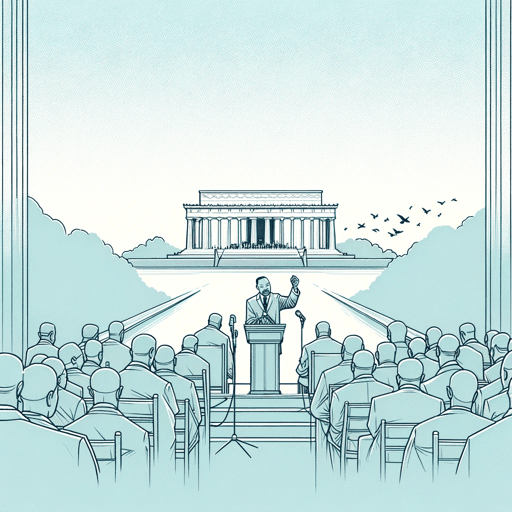46 pages • 1 hour read
Martin Luther King Jr.Letter From Birmingham Jail
Nonfiction | Essay / Speech | Adult | Published in 1963A modern alternative to SparkNotes and CliffsNotes, SuperSummary offers high-quality Study Guides with detailed chapter summaries and analysis of major themes, characters, and more. For select classroom titles, we also provide Teaching Guides with discussion and quiz questions to prompt student engagement.
Introduction
“Letter From Birmingham Jail”
- Genre: Nonfiction; letter
- Originally Published: 1963
- Reading Level/Interest: College/Adult
- Central Concern: Civil rights activist Martin Luther King, Jr. writes an open letter from Birmingham Jail, defending the right to engage in nonviolent protests opposing segregation.
- Potential Sensitivity Issues: Racism; segregation; social justice issues
Martin Luther King, Jr., Author
- Bio: Born in 1929 in Atlanta, GA; died by assassination in 1968 in Memphis, TN; civil rights activist and Baptist minister; graduated from Morehouse College, Crozer Theological Seminary, and Boston University; organized the Southern Christian Leadership Conference and helped to organize the 1963 March on Washington
- Other Works: Stride Toward Freedom (1958); “I Have a Dream” speech (1963)
- Awards: Nobel Peace Prize (1964); Time Magazine’s Man of the Year award (1963)
CENTRAL THEMES connected and noted throughout this Teaching Unit:
- The Interrelatedness of All Humanity
- Politics and the Church
- Nonviolent Direct Action Versus Violence
STUDY OBJECTIVES: In accomplishing the components of this Unit, students will:
- Develop an understanding of the social and historical contexts regarding segregation that motivate King’s nonviolent approach in the civil rights movement.
- Use research and critical thinking skills in completing structured activities to make connections via the text’s themes of Nonviolent Direct Action Versus Violence and Politics and the Church.
- Create and develop a unique written response that demonstrates an understanding of the use of rhetorical devices in persuasive appeals.
Related Titles
By Martin Luther King Jr.






